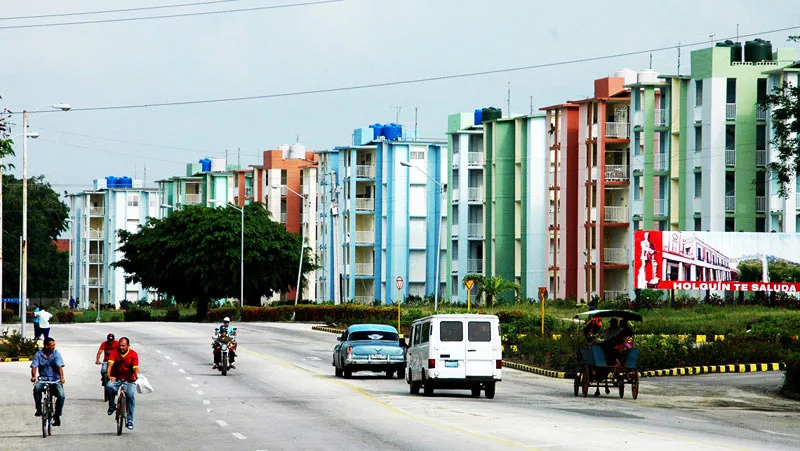Grandpa Pepe adjusted his chair in the doorway, while his 10-year-old grandson sat at his feet, ready to listen to one of his stories.
“Ale,” he began in a voice that mixed nostalgia and pride, “today marks another anniversary of a day that changed the lives of millions of Cubans. A day when, finally, the ghost of eviction stopped haunting our doors.”
The boy, accustomed to the security of his home, asked innocently, “Eviction, Grandpa? What’s that?”
“It’s an ugly word, son, it means throwing a family out onto the street because they couldn’t pay the rent. But to understand why October 14th, 1960, was so important, you have to go back a few years.
Back then, a man named Fidel Castro, speaking from a court where he was being tried for wanting a more just country, made a tremendous denunciation. In his speech, “History Will Absolve Me,” he described the tragedy of housing in Cuba. 400,000 families lived crammed into unsanitary barracks and tenements.
More than two million people paid rent that ate up a third of their income. And the vast majority of housing was in poor or terrible condition. The landlords, owners of hundreds of houses, profited ruthlessly and didn’t hesitate to evict anyone who couldn’t pay.”
The grandfather paused, remembering. “That was our reality. The dictionary defines eviction coldly. But those who experienced it never forget it. There was no worse anguish for a family than not being able to pay the rent at the end of the month. Every time there was a knock on the door, our hearts stopped.
It might be the Court Bailiff, holding the eviction notice papers. Sometimes the judge came accompanied by the police. They pushed the family out into the street and threw all the furniture and belongings onto the sidewalk. They did it with terrifying speed. The neighbors looked on in terror, knowing they could be next. It was the common fate of the poor in a wolf-like society. Where work was scarce and poorly paid.
“And where did these families go, Grandpa?” The boy asked, his eyes wide open.
“The family dispersed. Some to a relative’s house, others to a sympathetic friend who gave them shelter for a few days. Everything was uncertain, temporary, and terrible. Meanwhile, the landlord, indifferent, thought only of increasing his capital. He lacked nothing, except generosity, something incompatible with his business.”
“But then the Revolution came,” the old man continued, his face lighting up. “First, in March 1959, a law was passed that lowered rents by up to 50 percent. And then, on October 14th, 1960, came the day we will never forget. The newspaper Revolución announced on its front page: “The Urban Reform Law Approved.”
It was an immense joy. The law, which had been conceived since the time of Moncada. Made those who lived there owners of their homes. Immediately, 200,000 Cuban families received ownership. Imagine: after 20 or 30 years of paying rent, and having paid for their homes several times over, they were finally owners. Later, starting in 1989, another 320,000 families with illegal occupancy problems also received their titles.
“The most important thing about that law,” he emphasized, “was that it forever prohibited evictions. Just as the Agrarian Reform had prohibited peasant evictions. That terrible specter disappeared from our nightmares. Excessive rents and evictions became part of a past with no return.”
The Revolution began to build new settlements and multi-family buildings. Although the economic, financial, and commercial blockade has hit hard. The housing program has not stopped and is a high priority. Especially for those affected by hurricanes.
“Today, more than 85 percent of Cubans own their homes. Many receive state subsidies to build or repair. That October 14th not only fulfilled the Moncada Program, but surpassed it. It made a dream that for many seemed impossible a happy reality. There is still much to be done. But that day gave us a secure roof and, above all, gave us back our dignity.”
Grandfather Pepe concluded his story. The boy, although he could not fully understand it. Also felt the value of that date that had forever changed the history of his family and his country.
- Holguin Provincial Archive Hosts Exchange for International Women’s Day - 4 de March de 2026
- Céspedes: The Legacy of a Father - 27 de February de 2026
- The Silent Epic of Education for Young People and Adults - 24 de February de 2026

